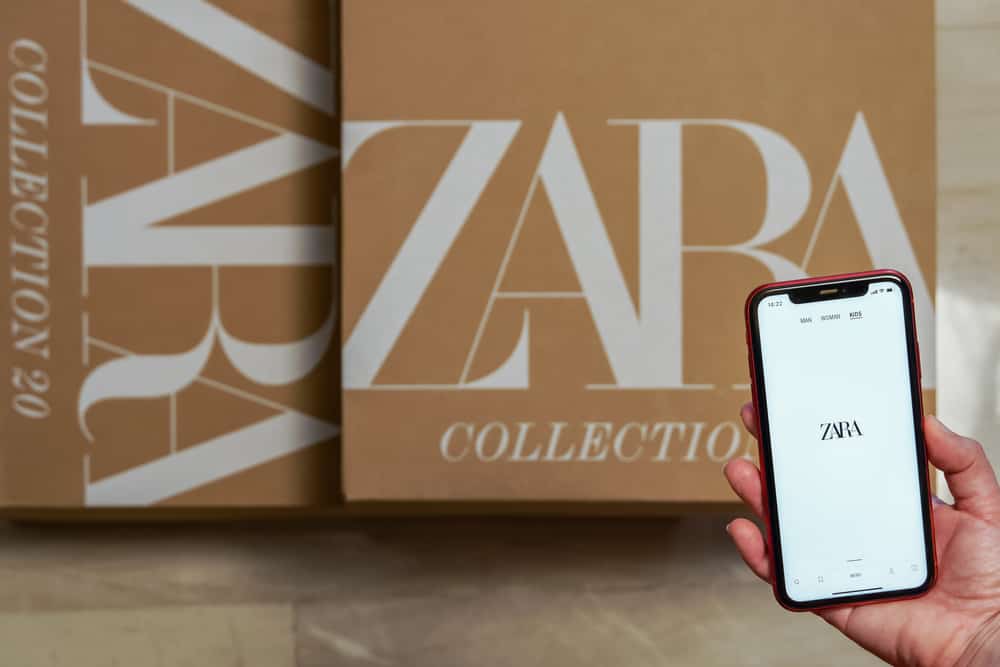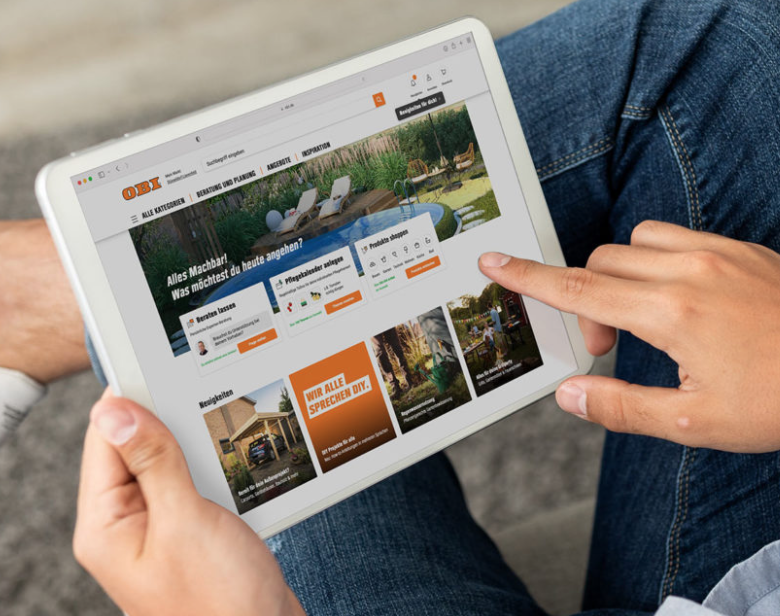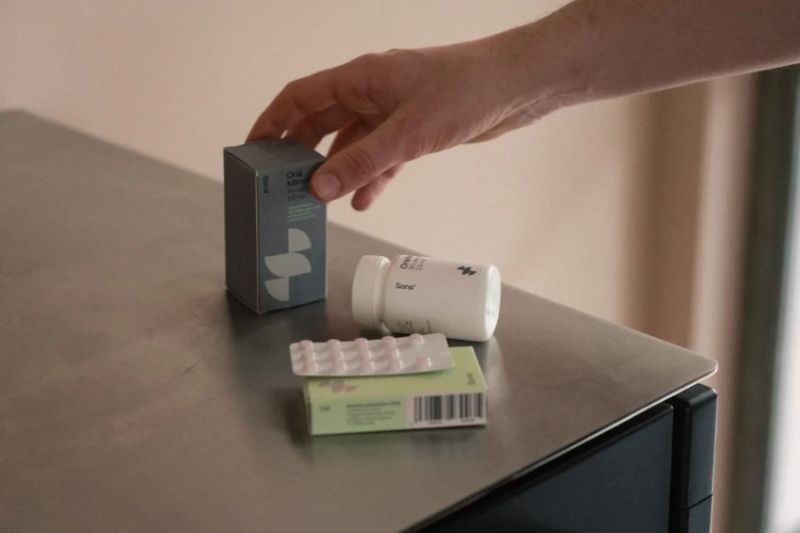Inditex, the parent owner of Zara, has unveiled new sustainability targets, which include looking to cut emissions along its value chain by 50% by 2030.
The move is part of the fashion giant, which also owns Berskha and Pull & Bear, pledge to reach net zero carbon emissions by 2040.
Speaking at its AGM, the company stated it will be using innovative materials, recycled textiles and raw materials that have been grown using organic and regenerative farming practices, in a bid to achieve these goals, alongside extending circularity initiatives such as Zara Pre-Owned.
Subscribe to Internet Retailing for free:
Click here to sign up for our daily newsletter
Other targets include ensuring 40% of fibres used by Inditex brands come from recycling processes by 2030.
However, the targets have been dubbed as “extremely ambitious” by CEO Óscar García Maceiras, who said it’s “just another step in the work the company has been doing for many years.”
The new targets come as the European Commission unveiled plans for tighter regulations in the industry, forcing clothing retailers to pay for the waste they produce.
As a result, it argued that fast-fashion companies “encourage customers to shop impulsively and incentivise purchasing larger quantities of clothes”.
Inditex chair Marta Ortega Pérez added: “Moving forward on sustainability is natural for us.
“The magic of Inditex lies with our team and values, heavily influenced by self-imposed high standards. he future is not predetermined and we must never forget that,” she added.
This comes as, according to the RetailX 2022 Sustainability Report, 44% of businesses are investing in easy recycling options for customers, such as Zara Pre-Owned.

Some 39% are improving manufacturing efficiencies and 36% revealing they are distancing from partners who won’t meet shared sustainability goals.
Around 35% of businesses are also investing more in measuring and tracking emissions, with 23% looking more into offsetting emissions in general.
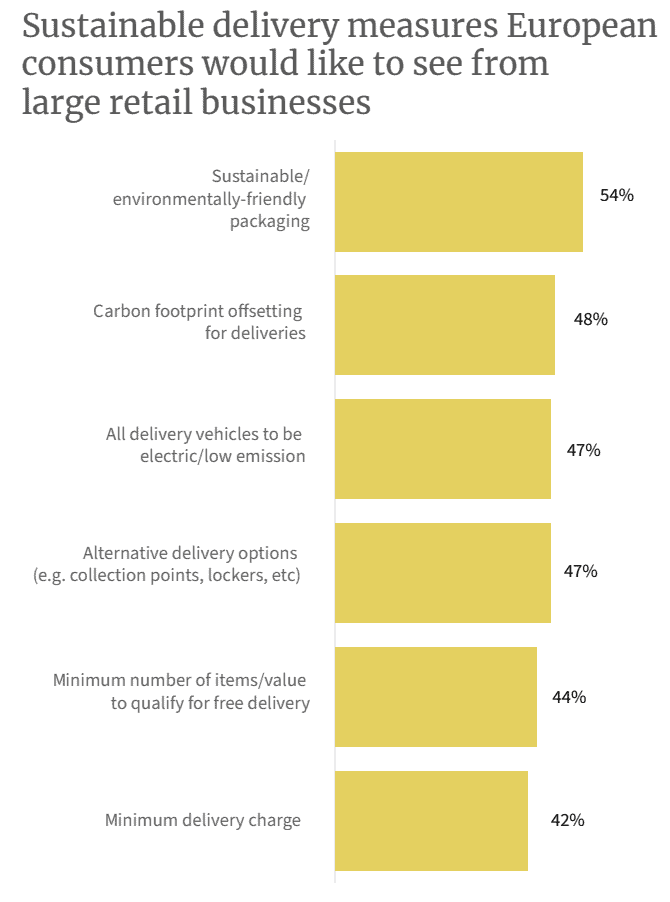
These targets are also in-line with what sustainable delivery measures European consumers would like to see from large retailers, which include sustainable packaging (54%), Carbon footprint offsetting for deliveries (48%) and all delivery vehicles to be electric/low-emission (47%).
Some 47% also want alternative delivery options such as collection points and lockers, whilst 44% said they would want a minimum number of items to qualify for free delivery.
Around 42% of the European customers added they want a minimum delivery charge.
Click here to view:
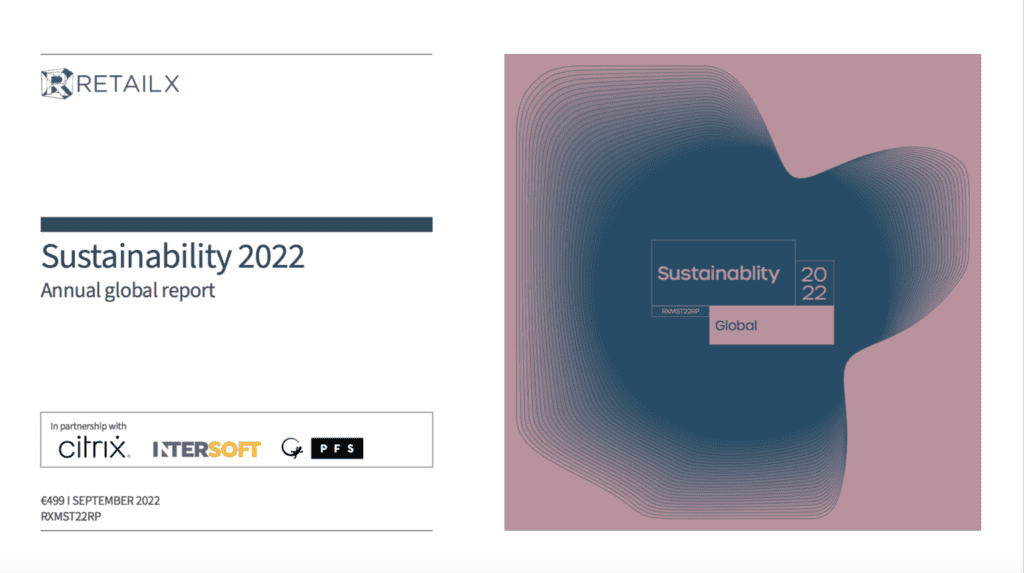
Download the 2022 RetailX Sustainability Report, which covers the pressures being placed on retailers by legislation and changing customer behaviour, through operations to final mile delivery and new business models.
